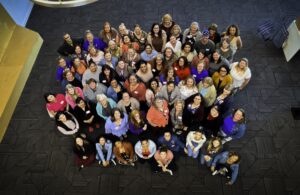Columbia County Housing Study: Executive Summary
December 2017
Introduction
In fall 2016, the Community Action Team (CAT), with the support of Columbia County and its cities, established a Housing Work Group to address the county lenders, and nonprofit representatives who collaborated over fifteen months to identify issues and solutions. This webpage summarizes the key findings, conclusions, and recommendations of the study.
Key Findings
Broader Economic Trends
“Nationally as well as locally, incomes have not kept pace with the rising cost of housing. On an inflation-adjusted basis, 2014 rents were about 1.6 times their 1960 value, while real incomes increased by a factor of 1.2.”
- Federal and state investments in low-cost housing fall short of needs, particularly in smaller communities like Columbia County.
- The real estate market cycle impacts housing supply and affordability, with Columbia County lagging a year or two behind Portland’s trends.
Housing Market Challenges
- One-third of households spend more than 30% of income on housing.
- A deficit of 1,900 units exists for households earning less than $25,000 annually.
- The county’s housing mix is heavily skewed toward single-family detached homes (87%), limiting affordability and diversity.
Study Conclusions
- A shift in perspective is needed to address housing problems effectively.
- Increasing the variety of housing types can better meet current and future demands.
- Local cost-saving measures and subsidies are essential to support nonprofit housing developers.
Action Plan
Goal A: Diversify Housing Types and Improve Housing Mix
| Strategy | Action | Lead |
|---|---|---|
| Remove regulatory barriers | Permit small multifamily projects and ADUs; rezone for higher density. | Public Sector |
| Promote new housing types | Provide ADU toolkits and streamline permitting processes. | Public Sector & Nonprofit Sector |
Goal B: Enhance Affordable Housing Opportunities
| Strategy | Action | Lead |
|---|---|---|
| Reduce development costs | Leverage underutilized public and private land; explore innovative construction methods. | Nonprofit Sector & Public Sector |
| Support subsidized housing | Foster collaboration among local nonprofits to strengthen affordable housing initiatives. | Nonprofit Sector |
Next Steps
The Community Action Team (CAT) is committed to supporting local jurisdictions in implementing these recommendations. Collaboration among public, private, and nonprofit sectors is essential to address Columbia County’s housing challenges effectively.
Full Report
For more detailed information, refer to the complete report available online: Complete Columbia County Housing Report.

